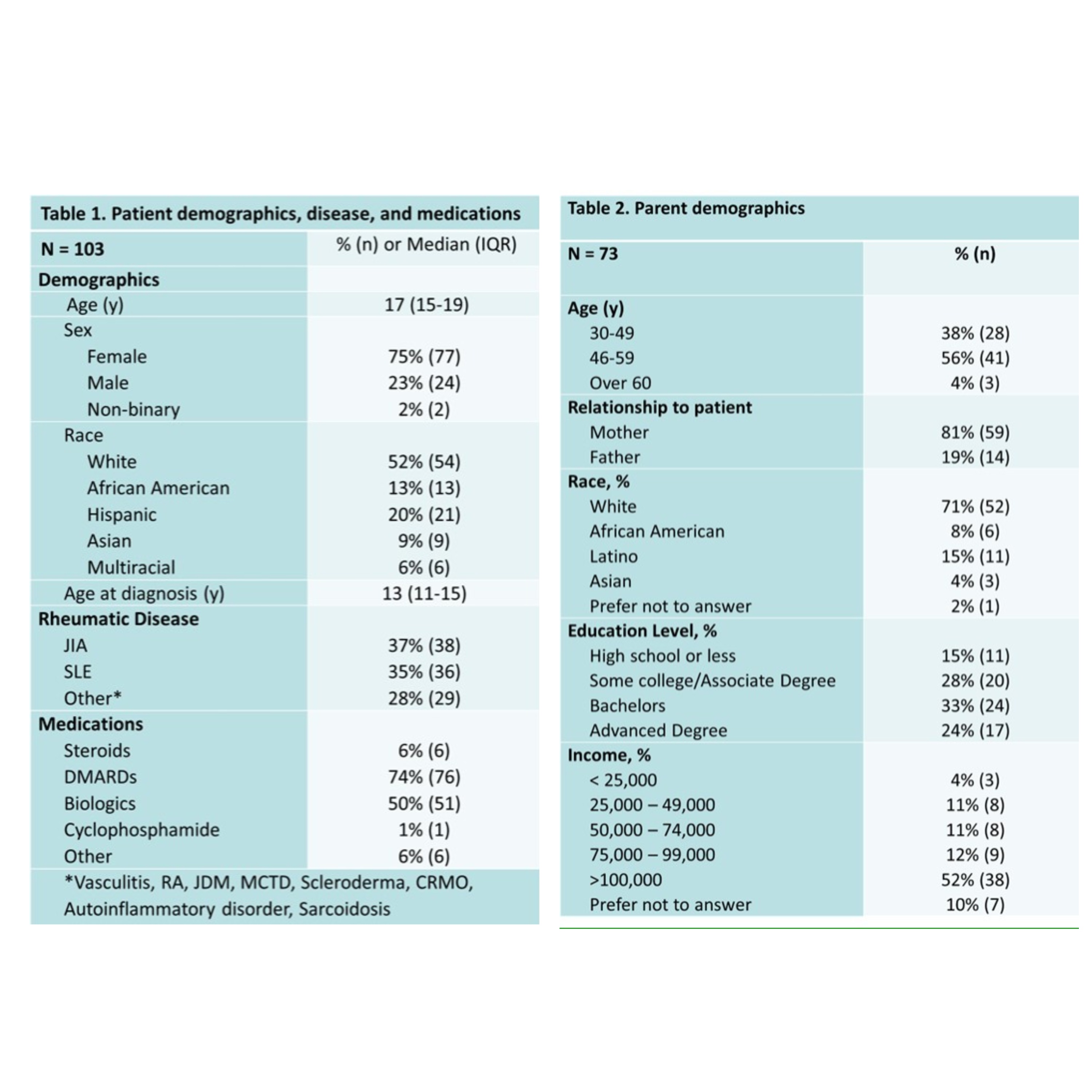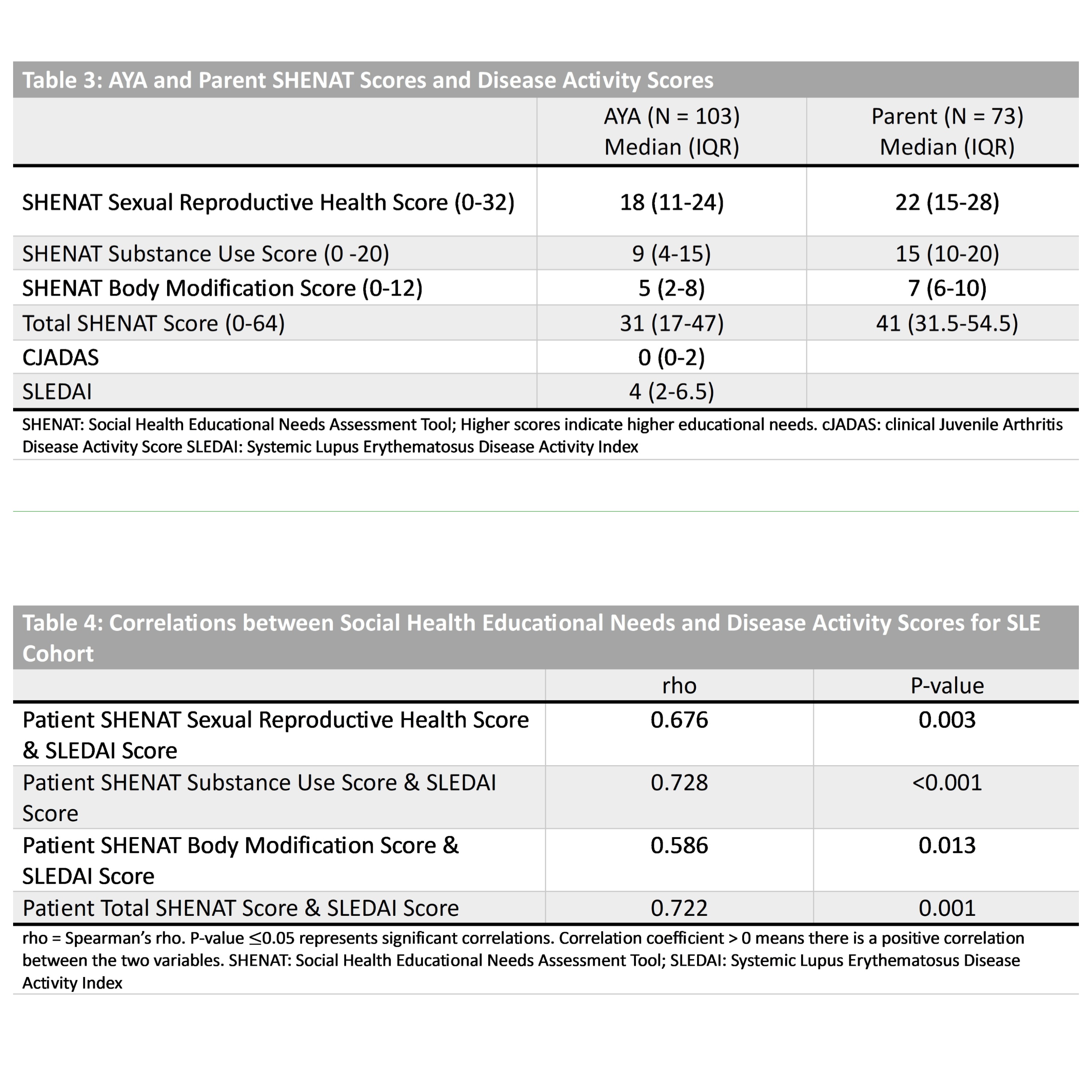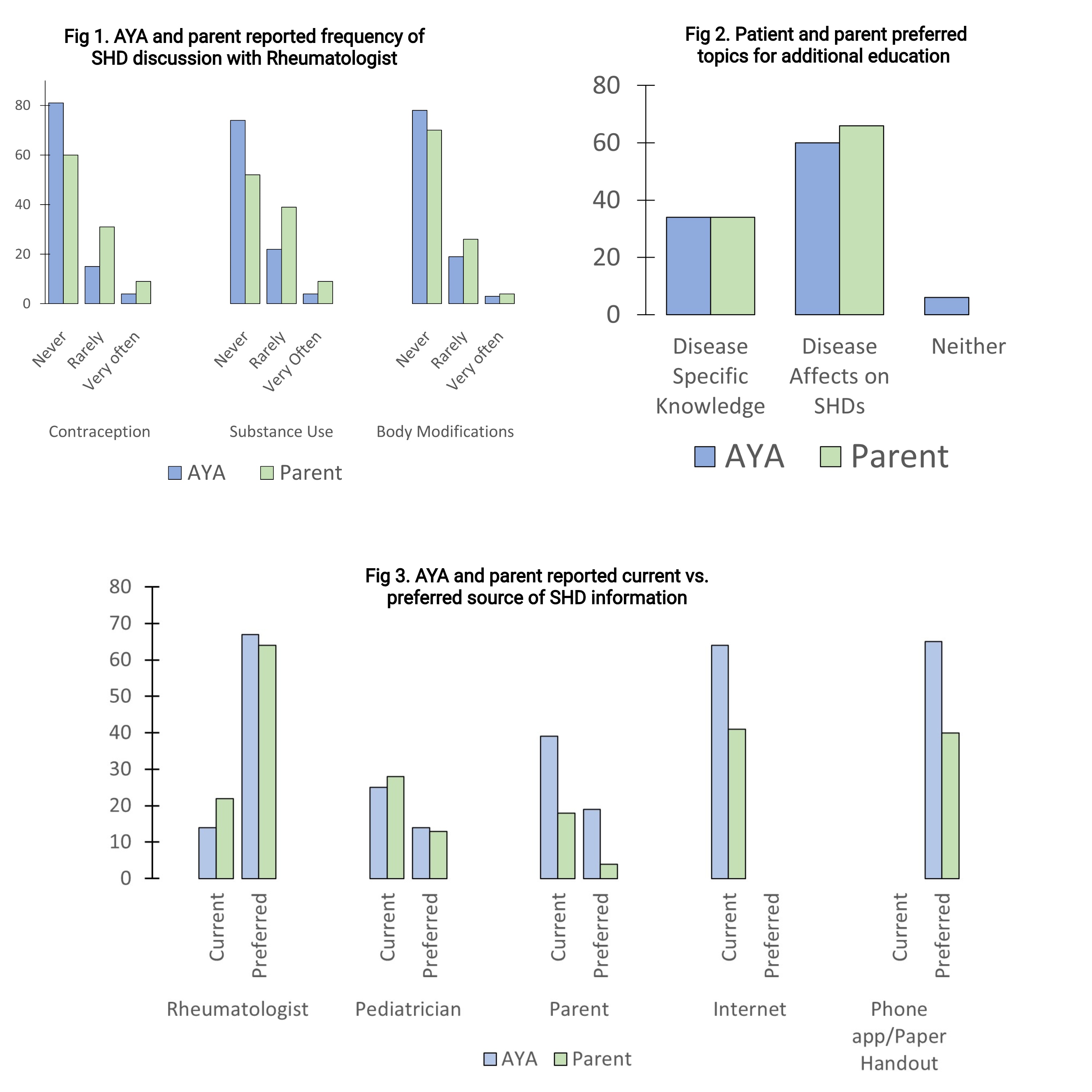Session Information
Session Type: Poster Session B
Session Time: 10:30AM-12:30PM
Background/Purpose: There is limited evidence on the educational needs and preferences of caregivers and adolescents and young adults (AYA) with rheumatic disease (RD) regarding the impact of their RD on Social Health Domains (SHD) and the extent to which these educational needs are met. The purpose of this study was to assess SHD educational needs and preferences of AYA and their parents. We also sought to determine correlations between SHD needs and clinical features, including diagnosis and disease activity.
Methods: AYA and their parent completed a novel survey (Social Health Educational Needs Assessment Tool (SHENAT) via paper and REDCap (Research Electronic Data Capture) collection that evaluated SHD needs, perspectives and preferences, based off the validated Educational Needs Assessment Tool (ENAT). The SHENAT contains three domains (sexual and reproductive health (SRH) (0-32), substance use (0-20), and body modifications (0-12)) scored on a 5-point Likert scale, with higher scores reflecting higher educational needs. Diagnosis, medications, and disease activity as measured by a Physician Global Activity 10-cm VAS, the SLE Disease Activity Index (SLEDAI) and the clinical Juvenile Arthritis Disease Activity Score (cJADAS) were extracted from the EMR. Correlations of continuous data were performed via Spearman’s rho and p< 0.05 was considered statistically significant.
Results: Of the 103 AYA and 73 parents surveyed the majority were female (75% and 81%, respectively). AYA median age was 17 (IQR 15-19) and self-reported race was most commonly Caucasian (52%), followed by African American (13%). Most common AYA diagnoses were JIA (37%) and SLE (35%), with median CJADAS = 0 (IQR 0-2) and SLEADI = 4 (IQR 2- 6.5), respectively. AYA SHENAT median total scores = 31 (IQR 17-47) and median SRH score = 18 (IQR 11-24), substance use score = 9 (IQR 4-15) and body modification score = 5 (IQR 2-8). The majority of AYA (67%) and parents (64%) indicated preference to receive information on disease impact of SHD from their rheumatologist; however, only 14% of AYA and 22% of parents reported their rheumatologist as the primary source of information. More than half of AYA and parents reported never having a conversation with their rheumatologist about each of the 3 SHD domains. The majority of AYA (60%) and parents (66%) also desired increased education on SHD over disease specific knowledge. There was a significant correlation with SLE patient SLEDAI scores and all 3 SHD domains (SRH (rho = 0.676), substance use (rho = 0.728) and body modifications (rho = 0.586)), as well as the total SHENAT score (rho =0.722).
Conclusion: Our survey identified a previously unrecognized need regarding SHD education in AYA with RD and their parents. Greater SHD educational needs in SLE patients with higher disease activity may be secondary to increased medication burden, which often includes teratogenic therapies, and merits further investigation. Importantly, we found substantial discordance between AYA/parent preferences and current pediatric rheumatology practices regarding SHD education, which underscores the need for SHD educational intervention in our practice.
To cite this abstract in AMA style:
Kirkpatrick K, Liegl M, Yan K, Sabbagh S. Higher Disease Activity in Pediatric Systemic Lupus Erythematosus Is Associated with a Greater Desire for Social Health Education: An Unmet Need in Pediatric Rheumatology [abstract]. Arthritis Rheumatol. 2024; 76 (suppl 9). https://acrabstracts.org/abstract/higher-disease-activity-in-pediatric-systemic-lupus-erythematosus-is-associated-with-a-greater-desire-for-social-health-education-an-unmet-need-in-pediatric-rheumatology/. Accessed .« Back to ACR Convergence 2024
ACR Meeting Abstracts - https://acrabstracts.org/abstract/higher-disease-activity-in-pediatric-systemic-lupus-erythematosus-is-associated-with-a-greater-desire-for-social-health-education-an-unmet-need-in-pediatric-rheumatology/



